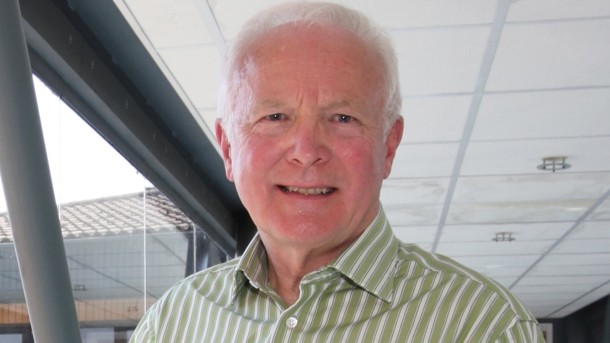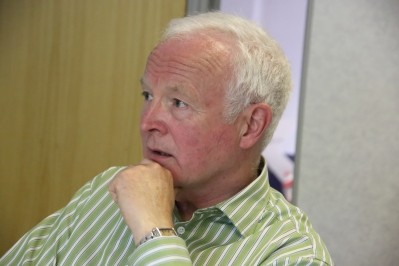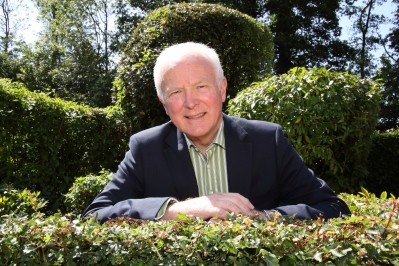SOFHT chairman plans to raise profile

Given the attention the food industry has received over the past few months, it is no wonder the Society of Food Hygiene and Technology’s (SOFHT's) new chairman Alan Lacey wants the society to have a louder voice.
Lacey, who is also Asda’s operations compliance manager, took over from Catherine Watkinson, SOFHT’s first woman chair and technical manager at Lyons Seafood, in June this year and wants to see the society reach a new level. “It has to, because the industry is evolving so much,” says Lacey.
Despite growing membership from 398 in 2012 to more than 500 this year (which was Watkinson’s ambition), Lacey is conscious SOFHT is facing some difficult times. And it’s all about cost-cutting that business attention has been focused on, which heightened during the recession, he says.
“People are going to look at the membership fee and think, ‘do I really need to belong to this?’,” he worries. Although some may see membership as a cost, Lacey argues that it’s much more of an investment in members’ businesses.
“SOFHT will continue to punch above its weight by recognising the issues out there. We’re going to be more reactive to emerging issues by voicing our thoughts on consultations.”
One example of SOFHT’s new responsive approach was its input into the consultation on the Food Information for Consumers Regulation (FIR), due to come into force this December. Being part of the FIR process was good for SOFHT, it gave it a higher profile as an organisation willing to be involved in consultations, he says.
Lacey has taken on the chairmanship of SOFHT after serving two years as vice chair. He’s served on SOFHT's board for more than 10 years and will see the society through its 35th anniversary this year.
Changes (Return to top)
“Things have changed even in the decade I’ve spent with SOFHT,” he says. “It used to be more of a training organisation and we had lots of trainers out there, which was helped by the Food Safety Act.”
The food safety training side of SOFHT has reduced somewhat, claims Lacey. This is partly because lots of people are already trained now and partly because many companies have their own inhouse training teams.
Yet, with cases of food poisoning exceeding 1M this year, according to figures published by the Food Standards Agency (FSA), and the horsemeat scandal last year, Lacey is convinced SOFHT still has an important role to play in training. But he wants it to become more involved in core industry issues too.
“For instance, I was invited to join the board of the new Institute of Food Safety, Integrity and Protection (IFSIP),” he says. IFSIP, which is chaired by Professor Chris Elliott of Queens University Belfast, was set up earlier this year by the Chartered Institute of Environmental Health, following the horsemeat scandal. Elliott’s report into the scandal is to be published this month (September 4), after being delayed last spring.
“It’s good for us to get into the consultation process and we’re doing that by joining groups such as IFSIP,” says Lacey. “If there’s going to be new legislation about anything in the food industry, then we're going to respond.”
One of the major outcomes from Elliott’s interim review into the horsemeat scandal, published in December 2013, was the need for more intelligence and sharing of information.
This makes the creation of IFSIP even more essential, says Lacey. “There’s bound to be another food safety scare such as horsemeat, it’s just going to happen.”
SOFHT has good contacts within the Department for Environment, Food and Rural Affairs, as well as the FSA, claims Lacey. “We have a lot of informal discussions with them and we're prepared to be involved if there's an issue.”
Food scandals (Return to top)
Lacey’s confidence in the likelihood of another food safety scandal occurring comes from his past experience. The food and drink supply chain is rife with organised crime, he claims. “It’s a hot industry and there’s a lot of money to be made.
“One of my friends, who works for Trading Standards (TS), busted a fake vodka gang. It was on such a scale that several warehouses were raided in north London.” Unlike the horsemeat scandal, he says, this case didn’t receive as much coverage in the press despite it being potentially lethal to consumers.
“This was a real risk to consumer health, but it wasn’t a sexy story,” he notes. “It may have made something about a warehouse being raided in a local paper.”
Another case of fraud cited by Lacey, which although potentially health-threatening did have a humorous side. It involved counterfeit Jacobs Creek wine. “I thought this was hilarious,” he says. “The counterfeiters had gone through lots of trouble to fake the bottles, but spelled Australia wrong.” The counterfeiters were rumbled by TS officers, who were buying wine while in Bournemouth at their annual conference.
Cases such as these concern Lacey, as they may involve the use of ingredients that are dangerous to consumer health.
Lacey recognises that organisations such as SOFHT have a responsibility to share any information involving fraud that could lead to criminals being convicted. It’s another reason why it’s important that SOFHT has a louder voice in the industry, he notes, “because we receive a lot of information”.
Better communication (Return to top)
Although better communication up and down the food supply chain will help to reduce organised food crime, Lacey also believes the government departments involved have to become more co-ordinated. “Enforcement in the UK is fragmented and prevents food crime being stopped,” he argues.
Lacey, who started out as an environmental health officer (EHO) specialising in food, adds: “Law enforcement is done by hundreds of local authorities, with sometimes poor communication between them.
“There are different enforcement regimes in different parts of Europe. Then there’s the reluctance on the part of companies to share intelligence because of intellectual property issues with branding and recipes.”
But, there is also a more dangerous issue preventing better communication between those in the industry and those who regulate it. Public sector workers don’t understand the private sector, says Lacey. “There needs to be better understanding by the authorities about the industry. We’ve all got a vested interest in it.”
This is not helped by a perception in some enforcement authorities that the food industry is the enemy, he claims. It is something Lacey has experienced first-hand. “When I went into the private sector, an EHO accused me of working for the enemy,” he says.
“Those were the actual words [he used] and it’s very disappointing you still get the jokes about crossing over to the dark side.”
Elliott report (Return to top)
Lacey expects communication across the board to improve when Elliott’s report is published, following its delay after Elizabeth Truss was appointed environment secretary in a cabinet reshuffle.
The Elliott review will teach the industry to become more savvy and help prevent future food scandals, although it won’t stop them, Lacey believes. “There will always be food contamination. But the authorities need to be more trusting of the food industry.”
Over his two-year tenure as chairman, Lacey vows to work hard to build the standing of SOFHT, which he hopes will ensure it is still around in another 35 years’ time.
Watch our exclusive video in which Lacey explained why EU consumers need to give genetically modified foods a chance.















